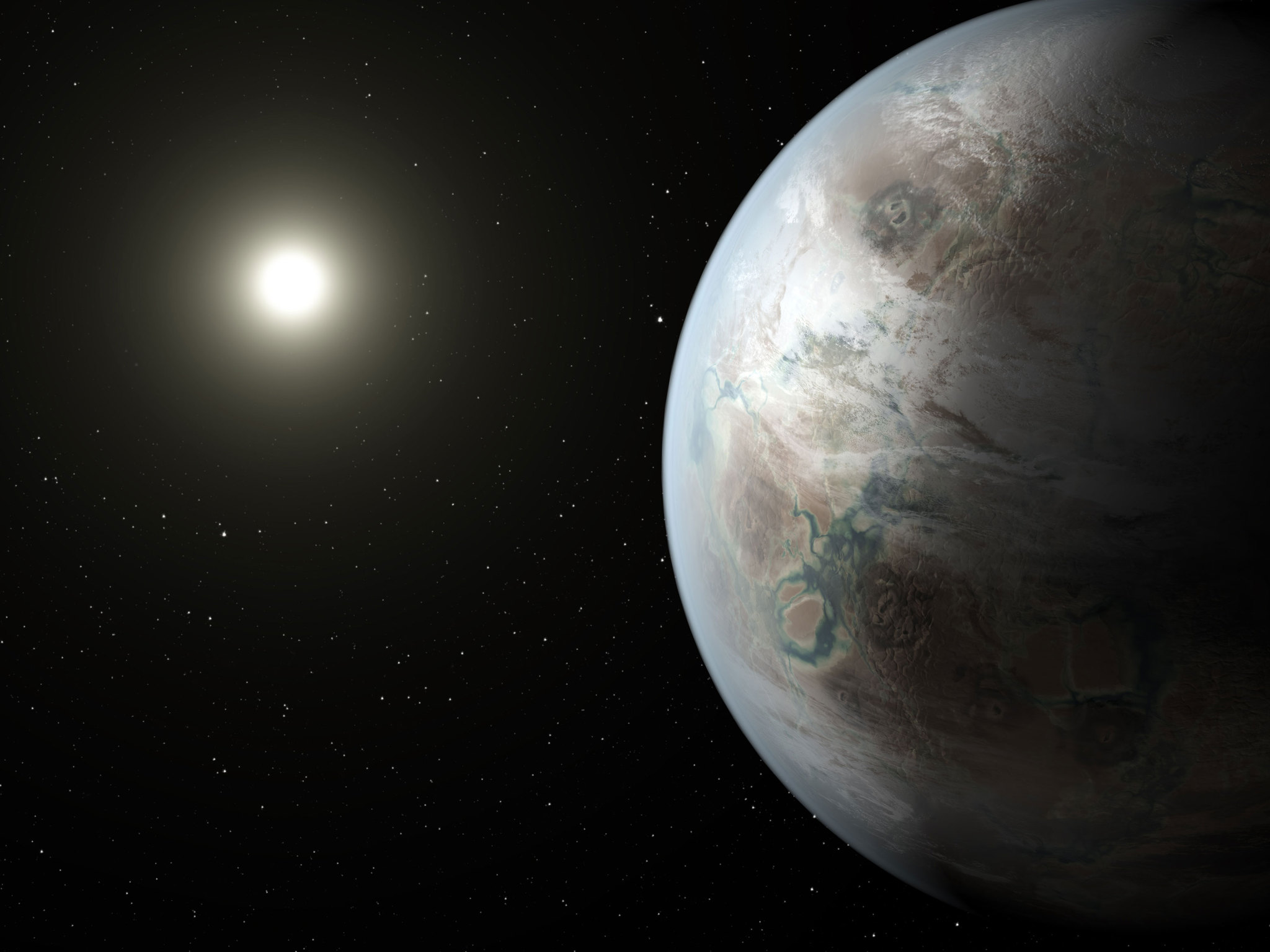-
Finding Signs of Alien Life Might Be Harder Than We Thought. Here's Why
May 02, 2017 / Written by: Ramin Skibba
An artist's conception of planet Kepler-452b, the first near-Earth-sized world to be found in the habitable zone of a star that is similar to our sun.(Inside Science) — It seems like every day that astronomers discover another possibly habitable world, like Proxima Centauri b, our closest exoplanent neighbor, and TRAPPIST-1f, one of seven recently discovered Earth-sized planets orbiting the same star. But don’t prepare for first contact just yet. It will be exceedingly complicated to figure out whether there’s actually any life or potential for it on such planets, based on new research into our own evolving world.
To a distant observer peering through a telescope, even Earth would not have shown signs of life through most of its past. Despite the fact that our planet was teeming with mostly microscopic life for three billion years, levels of oxygen and methane — gases often produced by metabolizing organisms — would have been too low to be noticed from afar. This means that today’s scientists on Earth might not be able to detect commonly assumed signs of extraterrestrial life, and they might give up on planets that are actually inhabited, according to a new study in the journal Astrobiology.

This artist's concept is one interpretation of what it could look like to be standing on the surface of the exoplanet TRAPPIST-1f.“There are huge swaths of time throughout Earth’s history during which it would’ve been difficult to see the presence of these metabolisms even though we know from the rock record that they were around. It’s a sobering thing,” said Christopher Reinhard, an Earth scientist at the Georgia Institute of Technology in Atlanta, and lead author of the study, who presented the research at a conference in Mesa, Arizona on April 27.
Source: [NBC News]
- The NASA Astrobiology Institute Concludes Its 20-year Tenure
- Global Geomorphologic Map of Titan
- Molecular Cousins Discovered on Titan
- Interdisciplinary Consortia for Astrobiology Research (ICAR)
- The NASA Astrobiology Science Forum Talks Now on YouTube
- The NASA Astrobiology Science Forum: The Origin, Evolution, Distribution and Future of Astrobiology
- Alternative Earths
- Drilling for Rock-Powered Life
- Imagining a Living Universe
- Workshops Without Walls: Astrovirology